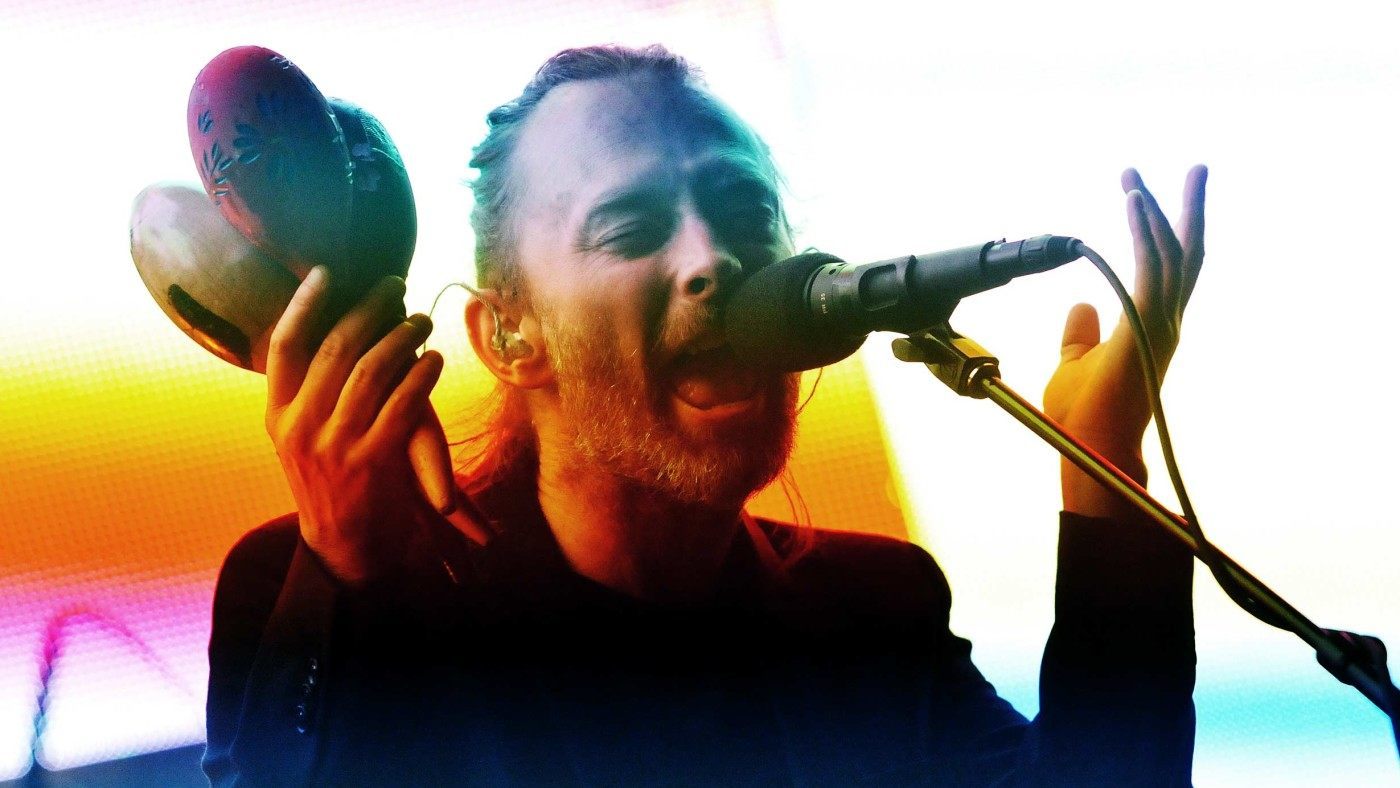Radiohead’s new album A Moon Shaped Pool is the best work the band has produced since they began working over twenty years ago. It’s also their most artistically consistent creation.
The album begins with Burn The Witch, pre-released as a music video. It exerts a visceral demand on our attention. Using the imagery of 1960s children’s television programmes Camberwick Green and Trumpton, and set to a backing of Steve Reich style discordant strings, the lyrics address the prescient theme of surveillance: “Loose talk around tables, Abandon all reason… Shoot the messenger,” Thom Yorke wails. This comfortable village from England’s past is transfigured into a nightmare society ruled by the mob.
If Burn The Witch gains the listener’s curiosity, tracks like Glass Eyes signal the direction of the album as a whole. This song begins with two sets of piano melodies which lift upwards, and gradually merge into one. Strangely muffled and distorted, the background haze is interrupted by violins which sail above. The two musical landscapes complement and interlock with the Yorke’s vocals: “I just got off the train/A frightening place/their faces are concrete grey… the path trails off and heads down the mountain/I don’t know where it leads/I don’t really care/I feel this often, go”. Artlessness, melancholy, mystery and fear are all held in fragile communion.
Decks Dark is a Thom Yorke virtuoso performance. His voice lilts over an initially sparse framework made up of two piano lines which becomes fuller over the track. A couple of lines are reminiscent of T.S. Eliot’s poem The Hollow Men, beginning “We are the hollow men/ We are the stuffed men/Leaning together/Headpiece filled with straw”. Yorke croons: “Are we trapped? Rag doll cloth people/We are helpless to resist/In your darkest hour”. The sonic architecture seems to present the listener with continually unfolding, limitless landscapes. But, in contrast to that mysterious background, another system is articulated. Yorke’s voice never deviates from a vision of unmitigated bleakness.
Radiohead have pursued an equally sophisticated approach in the way in which their music is released and distributed. The 2007 album In Rainbows was first released online to be downloaded for whatever price the consumer wished to pay, and then later sold as a box set – a dramatic reimagination of the transaction between listener and artist. Made available for traditional download, King Of Limbs was also accompanied by a vinyl newspaper edition. A Moon Shaped Pool follows the same template.
It is possible perhaps to see Radiohead as the internet-era intellectual heirs of the early twentieth century phenomenologists and existentialists. They too considered the relationship between technology and freedom, and between the individual, society and state. Free will, the diminishing possibility of the romantic articulation of love, and the paradox of distance and simultaneity introduced by advanced communication are all major themes here. The album ends with the stunning creation True Love Waits, the studio version of a track which has often appeared in live sets. The melody soars over various piano parts which loop over each other and dissolve into the background. Yorke’s voice trails off into the distance with a line of extraordinary honesty and sadness: “Just don’t leave, don’t leave”.
This album is unique. It gives the listener the impression that, as each song unfolds, they are being offered a glimpse into the various landscapes of another world altogether. It is this more than anything that makes A Moon Shaped Pool so rare and very precious.


